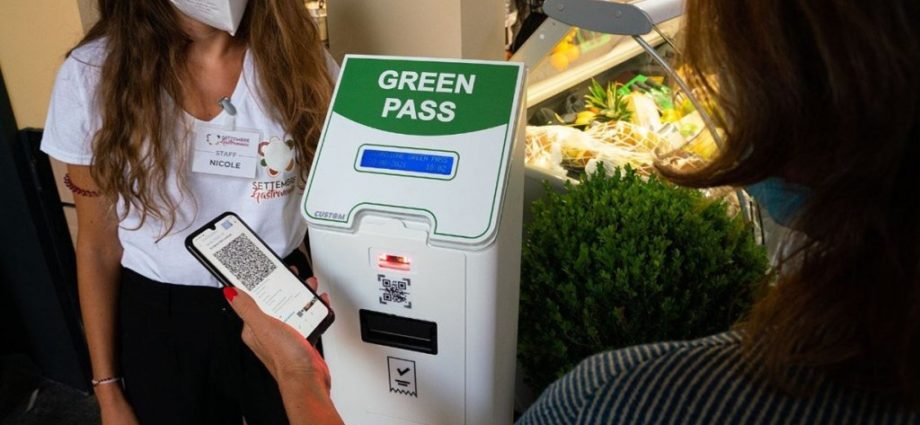
Photo from wikimedia commons
A recent holiday in Italy has allowed me to compare the contrasting approaches taken in fighting Covid-19.
In Italy face masks are still compulsory in enclosed spaces. Here they are not. Thus, in a recent journey to Manchester my train compartment was packed, but hardly anybody was wearing masks whilst a few were coughing.
Italy also requires a “green pass”, with evidence of either vaccination or a recent negative test as a condition to access indoor venues and workplaces. Conversely, in England the use of vaccine passports has been excluded. Both Scotland and Wales will use vaccine passports starting in October as a requirement to get access to some venues. Even the US is introducing some sort of vaccine passport.
My impression is that vaccine hesitancy is a greater problem in Italy. Despite that, Italy has recently moved slightly ahead of the UK in the vaccination rankings (see Table), probably as a result of both the green pass and of having started the vaccination of 12- to 17-year-olds earlier.

Schools are back with face-to face learning, but in different ways: in Italy, unlike here, pupils have to wear face masks during lessons.
These differences in approaches may explain the different outcomes. Throughout the summer the number of new infection cases in Italy has been around 5,000 per day as opposed to above 30,000 here.
Higher infection rates have consequences. Since mid-July the number of daily Covid admissions to hospitals has exceeded 700. This makes it more difficult for the NHS to catch up with the care backlog. The NHS waiting list is highest since records began in 2007 and increasing numbers of Britons are seeking private medical treatment.
Covid transmission in UK schools is higher than last year. The current rise in teenage Covid cases is in part due to the delayed start of vaccination for 12- to 15-year-olds.
The Covid infection numbers could increase during the winter, unless this natural trend in counterbalanced by an increase in vaccine-induced immunity.
Vaccination of 12- to 15-year-olds is now under way in the UK, though just with one dose. Severely Immunosuppressed individuals have also been offered a third vaccine dose (at least eight weeks after the second dose) on the basis of research showing that that 40% in this group do not respond well to a 2-dose vaccination schedule.
Furthermore, any individuals at risk or above the age of 50 will be offered a third dose six months after their second one. The rationale for this is that protection against symptomatic infection wanes with time. This seems to occur a bit more rapidly amongst recipients of the AstraZeneca vaccine.
However, some scientists have argued that, as protection against severe disease lasts longer than protection against mild infection, it might be better to wait for the longer term results of booster dose studies. This would allow targeting the use of vaccines on the unvaccinated, of which there are many around the world (Lancet 13 September).
An immediate third dose booster would be less critical if we maintained a minimum of social distancing and face mask use. A vaccine booster delay would give time to assess whether better results could be achieved with modified vaccines targeting the now prevalent delta variant, rather than with the current first generation vaccines.
The US vaccine booster program is similar to the one approved in the UK, whereas the European Medicines Agency has not yet decided. There is no doubt, though, that vaccine boosting will be required eventually for everybody.
There are additional vaccination strategies still under evaluation in clinical trials, such as the vaccination of 5- to 11-year-old and the use of intranasal spray vaccines. Nasal vaccines could reduce vaccine hesitancy and might be better than injectable vaccines at curbing infection transmission.
Covid is not likely to be completely eradicated but we may get to the point when an increasing level of immunity will make it virtually disappear during the summer, only to return as a milder infection during the Winter, in the same way as seasonal Influenza does. Until we get to that point, Covid passports and face masks would help to reduce the impact on the NHS and the number of deaths.
Read more by Giuseppe Bignardi.
Please follow us on social media, subscribe to our newsletter, and/or support us with a regular donation


